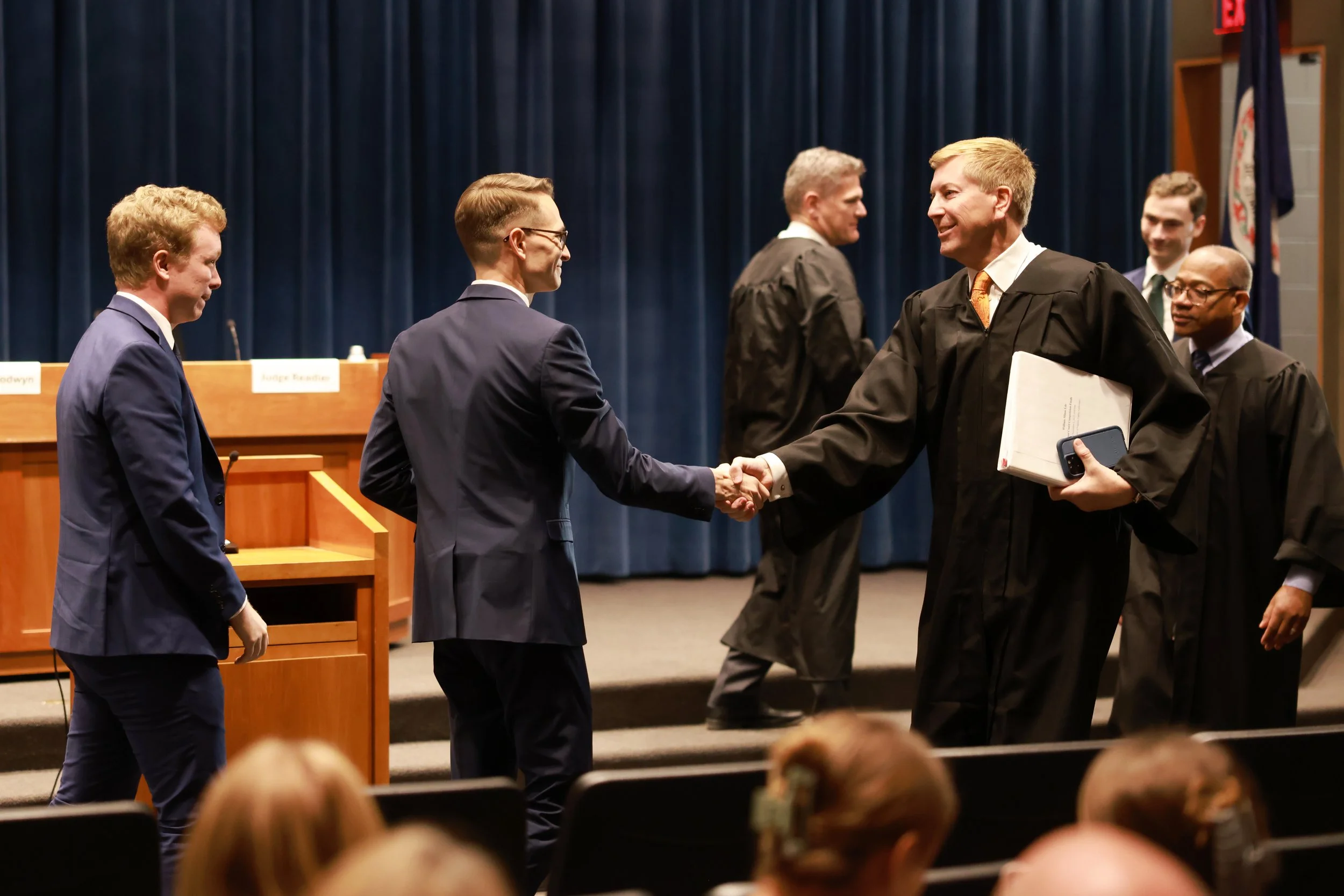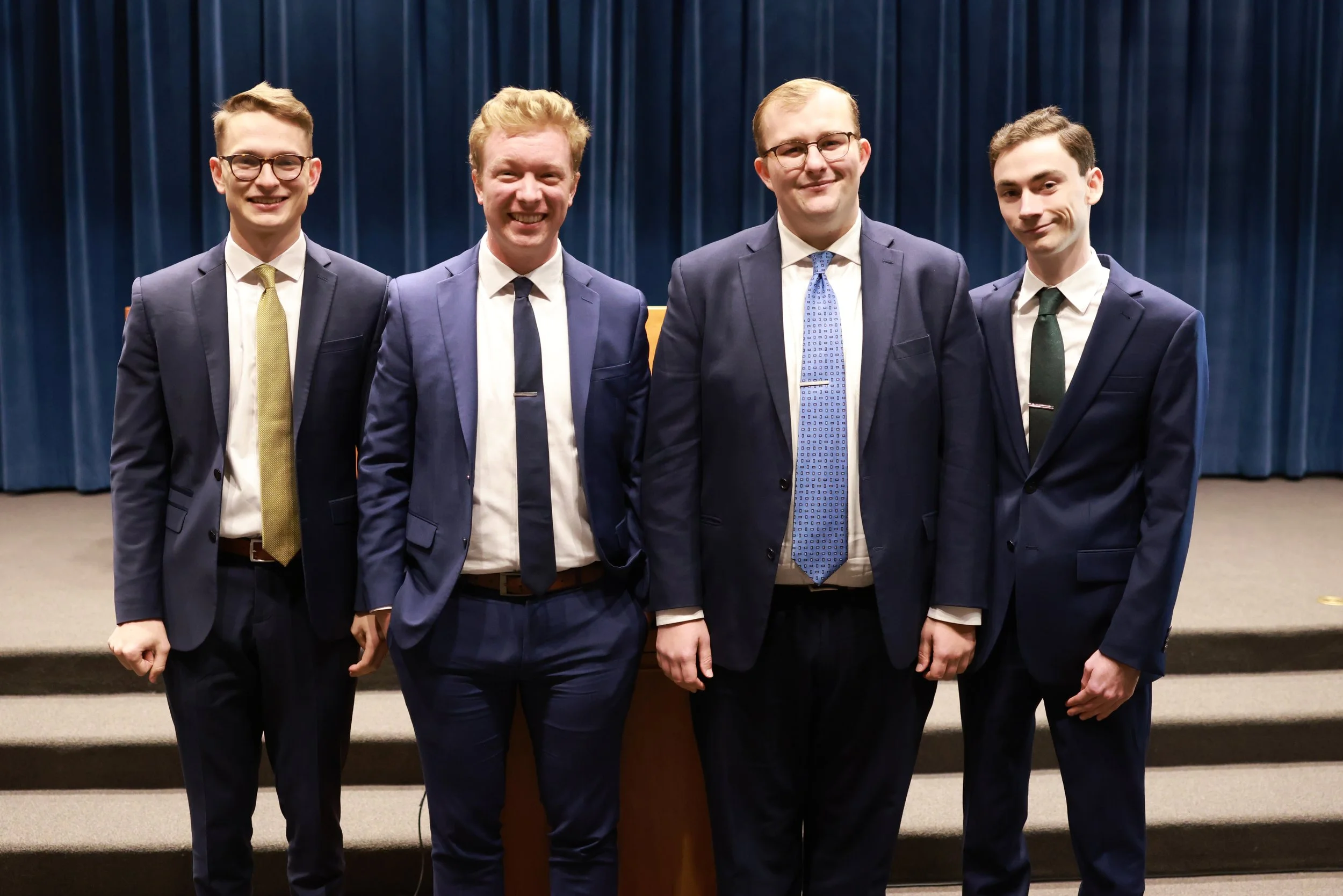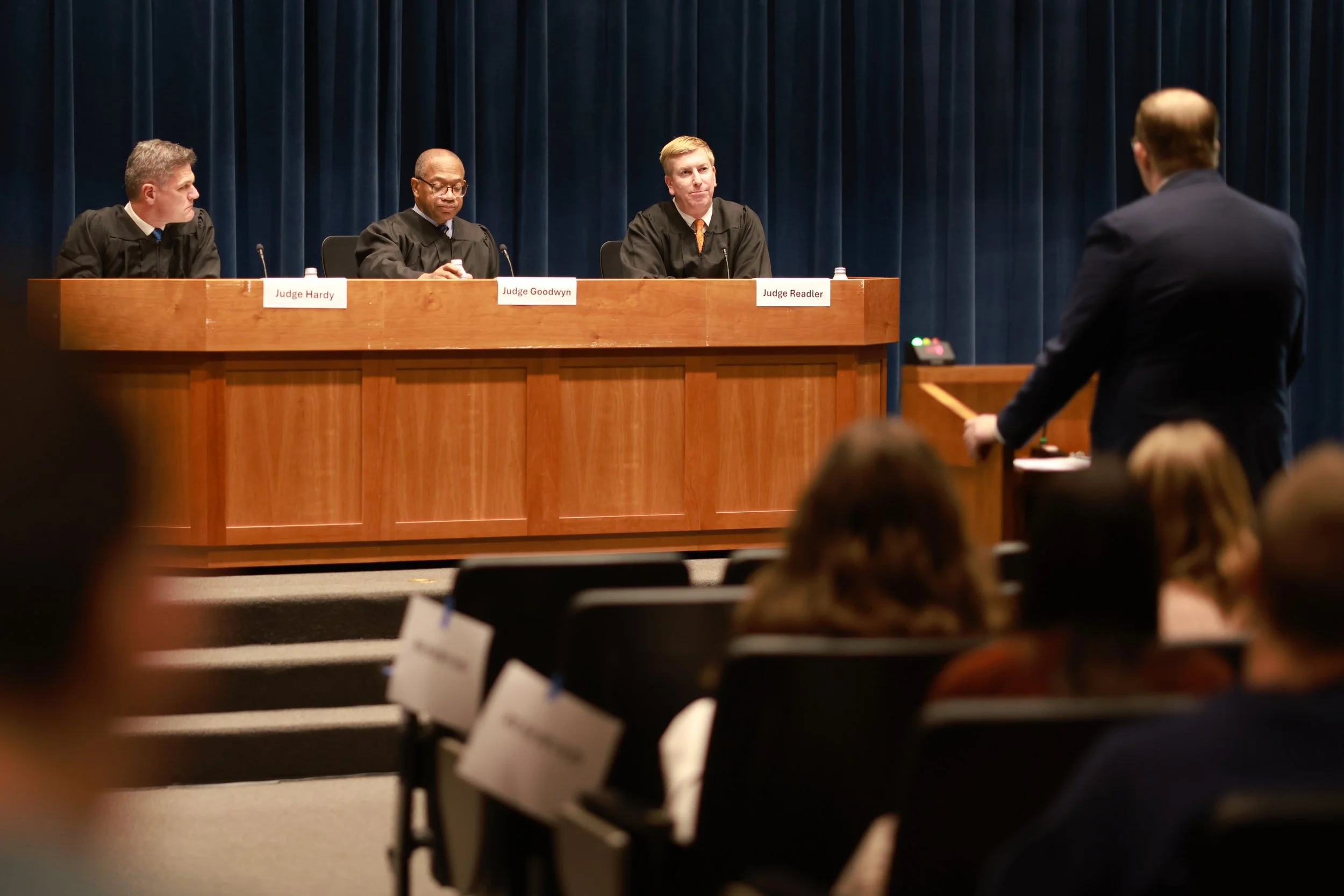Bainbridge and Meinerding Win 97th Annual Lile Moot Court Championship
Photo Credits: UVA Law School
The 97th Annual William Minor Lile Moot Court finals were held last Thursday afternoon, November 6. Two teams of finalists each delivered oral arguments to a sizable crowd before a panel of three judges in Caplin Auditorium.
The teams went head-to-head over two primary issues: first, whether a hypothetical geofence warrant for Google Maps location history data turned over in the wake of an attempted bank robbery was valid under the Fourth Amendment, and second, whether the attempted bank robbery constituted a crime of violence subject to a federal sentence enhancement under 18 U.S.C. § 924(c). The problem was prepared by Brian Curtis ’26 and Anna Fortunato ’26 of the Lile Board.[1] Alex Webb ’26 and Lance Ledet ’26 argued on behalf of the appellant bank robber, while Eric Meinerding ’26 and David Bainbridge ’26 argued on behalf of the government appellees.
The panel of judges was composed of Judge Chad A. Readler of the U.S. Court of Appeals for the Sixth Circuit, Judge Liam P. Hardy of the U.S. Court of Appeals for the Armed Forces, and Chief Justice S. Bernard Goodwyn ’86 of the Supreme Court of Virginia.
The two teams alternated speaking, with Ledet followed by Meinerding on the Fourth Amendment issue, then Webb and Bainbridge on the statutory issue. The oralists’ time was measured by a small electronic stoplight timer, which turned yellow when time was low, and red when it was out. The audience, friends, family, faculty, and many earlier competitors in the Lile Moot Court Competition, sat with rapt attention as the finalists spoke. Each oralist advocated their position with vigor and precision. It was abundantly clear that each knew the facts and legal issues of the case like the back of their hand.
The bench was very hot. All three judges frequently interjected with questions and hypotheticals that were effortlessly countered by the speakers. The anecdote that Dean Kendrick told the class of ’27 on orientation day entered my mind as a result: “that when you look at ducks swimming across a pond, they look totally serene. But beneath the water, the ducks are paddling furiously.” Years of training and months of preparation enabled the competitors to glide smoothly from point to point.
Each speaker was totally unflappable in the face of difficult, often vivid questions like, could an attempted bank robbery truly be considered a nonviolent crime? “What if [the appellant] cracked open a teller’s head with the butt of his gun . . . a little skull fracture?” asked Chief Justice Goodwyn. This elicited laughter from the crowd, and a smart rejoinder from Webb.
Whenever the judges raised a point, every speaker would begin with placation. “You’re right, your honor” or “your point is well-taken, your honor.” Down to the finest detail, the contestants had an impeccable set of judicial manners. But the compliments went the other way as well. After it seemed as if the finalists had talked through each issue, a judge remarked, “This is a hard question, and we agree. That’s why it’s a good moot court problem.”
The finals this year struck an odd balance between art, sport, and law. Typically held in Caplin Pavilion, the finals are an intimate experience in a small space. Caplin Pavilion is essentially a box. The judges presided whilst sat behind a folding table disguised by a black tablecloth. Rows of chairs create the rough geometry and the feel of a courtroom. In contrast, there is no changing Caplin Auditorium from a theater into a courtroom. The organizers wisely made the space feel smaller, bringing in the hanging dividers from the wings—the same configuration used in Caplin Auditorium during the Libel Show. But, as one attendee correctly noted, “this is not at all like Libel.”
And yet, it was a fantastic performance. It brought to mind DC’s Shakespeare Theater Company’s Mock Trial series, where attorneys and judges, often Justices of the Supreme Court, adjudicate the crimes of characters from plays, such as King Lear or Victor Frankenstein. The finals, a showing of skill, could not escape the air of the theatrical, assisted by the setting. But in this reporter’s opinion, it made the competition all the more enjoyable to watch. The change in venue also meant that the Lile collapsible and transportable stage, the subject of some logistical concern, went unused. Last this reporter saw, it was in the office of the Virginia Journal of International Law, but one might suspect that it will keep a wandrin’.
When the dust had cleared, the judges emerged from the wings to announce a winner. Eric Meinerding and David Bainbridge were announced winners of the 97th William Minor Lile Moot Court Competition. Alex Webb won the Stephen Pierre Traynor Award for best oralist. The judges said that it was a very tight competition. All three judges said that the finalists would be welcome in their courts any time.
[1] https://www.law.virginia.edu/news/202510/what-makes-good-moot-court-problem.



